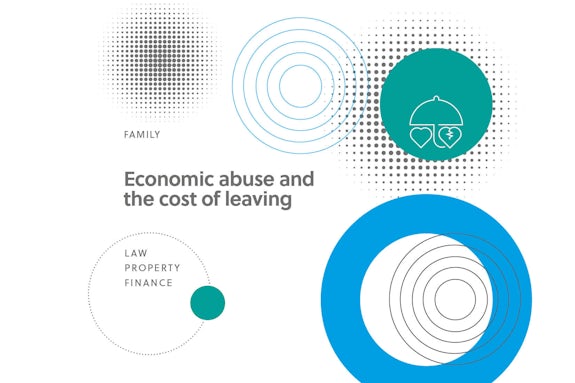
By Sarah Feeney
May 9, 2025

Most people are familiar with what constitutes physical and/or sexual abuse but many do not realise that domestic abuse isn’t just physical; it can happen in many ways.
In Scotland, the law recognises domestic abuse as a crime. This means that a person who engages in a pattern of abusive behaviour toward a partner or ex-partner can be prosecuted.
The Domestic Abuse (Scotland) Act 2018 came into force on 1 April 2019. Abuse now includes violent, physical, sexual, psychological and financial abuse. Coercive control is where an abuser attempts to control their partners everyday life and choices. Economic and/or financial abuse is a form of coercive control, a pattern of behaviour which restricts and limits the victim’s freedom of choice. As it separates people from sources of support and takes advantage of their resources or capacities, depriving them of independence, resistance, and escape options, it fits into a pattern of coercive and controlling behaviour.
You do not need to be wealthy to experience economic and financial abuse. The cost-of-living crisis is already causing hardship and will continue to be challenging for victims of economic abuse. It can exist in any relationship and affect people from all walks of life. It’s less about the money or assets themselves, and more about using them to gain and maintain control over someone.
Economic and financial abuse are terms that are often used interchangeably. Economic abuse is a wider definition as it can include restricting access to essential resources. Financial abuse is the economic control of one person by another. It is designed to create financial insecurity and restrict independence, interfering with that person’s ability to access and use financial resources, making victims economically dependent on their abusive partner now and in the future. In many cases, the abuser will have sole access to the family’s finances, capital and income, and then restrict their partner’s access to money, credit facilities, goods, services, food and clothing
Examples include;
This type of abuse is often subtle and difficult to identify, meaning it can go unnoticed for some time. It frequently occurs in conjunction with other types of abuse, such as physical, sexual, and emotional abuse. This has a significant impact on the victims’ lives, trapping, frightening, and isolating them, with long-term effects on their mental and financial well-being.
The current cost of living crisis is likely to compound the difficulties victims face when trying to leave an abusive relationship. When you are experiencing economic abuse along with increased financial hardship, leaving an abusive partner may appear impossible. For some people, control can persist after the relationship ends and the abuse continues. This is known as post separation abuse and can include refusal to pay child maintenance
In cases of financial abuse, when separated couples deal with their finances, the abuser can use this opportunity to continue the abuse by disrupting or delaying the legal process and limiting access to matrimonial assets as a means of control. They might also attempt to make the divorce process challenging. Many victims can find they have no access to funds, bank accounts or borrowing capability. Maintenance payments are frequently forgotten or side stepped.
In high net worth cases, the abuser can attempt to take advantage of complex asset structures and attempt to relocate, sell or conceal their assets, or move money internationally. They may even go as far as changing their personal circumstances, such as resigning from their job or retiring early to manipulate their wealth and cause financial hardship.
However, it is important for victims to understand that there is assistance available for them. Our family lawyers have various tools we can use, depending on the individual circumstances, we can seek court orders that require the abusive partner to leave the family home, interim aliment orders to help meet needs while the case progresses, and orders to prevent the disposal or sale of assets.
Everyone has the right to financial independence. If you are ever affected by a similar experience, you should consult a Family Law Solicitor at the earliest opportunity.
If you would like further information regarding the topics discussed in this blog, please contact:
Sarah Feeney by email sfeeney@gilsongray.co.uk or telephone 0151 530 2021
You can also visit our Family Law Team page by clicking here.
The information and opinions contained in this blog are for information only. They are not intended to constitute advice and should not be relied upon or considered as a replacement for advice. Before acting on any of the information contained in this blog, please seek specific advice from Gilson Gray.

Sarah is an Associate with Gilson Gray. She is accredited by the Law Society of Scotland as a mediator and is also a trained collaborative practitioner and is a member of Consensus. Sarah is a dedicated family lawyer and has specialised in family law since 2009.